BlogBlog
Master Thesis
March 4th, 2024
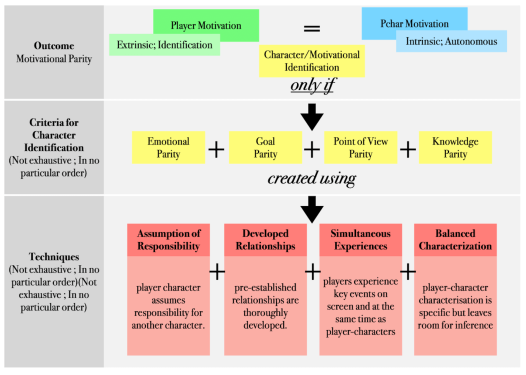
Why do we play games? There are arguably two interpretations of this question: Firstly, in a practical sense, players play to win. Competition and a sense of accomplishment are powerful driving forces that the numeric systems behind games channel perfectly. But there is a second facet to player motivation. We play games to partake in fiction, and good games motivate and call us to action by appealing to our deepest, most fundamental need to understand one another. This paper explores how game narratives benefit from establishing motivational parity between players and player-characters (nar...
Postmodernism in NieR
March 2nd, 2024

Samsara, the “suffering-laden cycle of life, death, and rebirth, without beginning or end” (Wilson,2021) is fundamental to Buddhism and the human experience in general. It has been studied through countless lenses, ranging from those of different religions, to philosophical and artistic ones. A recent interpretation of the theme can be discerned in the 2017 Platinum Games action role-playing game NieR:Automata (NieR), in which players are confronted with the existential dilemma of finding meaning in an abandoned, dystopian world. While the game’s three automata protagonists wage a proxy war...
Sampling in Video Games
March 1st, 2024
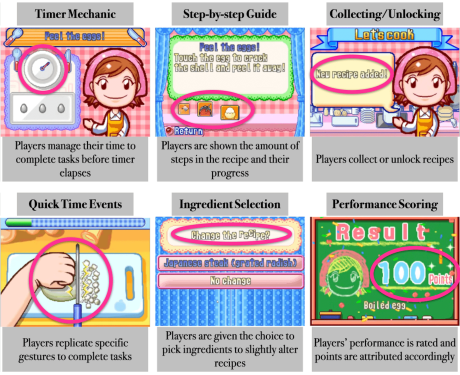
Video games are a new and emergent medium compared to cinema, music, or literature. With their popularity, capacity, and commercial potential having increased exponentially over the past decades, many industry regulations have yet to be installed or streamlined. Game designers lack guidelines targeting the process of taking inspiration from other games, as well as protecting their own intellectual property, which may be one reason for the frequent use of the terms “clones” or “copies” when referring to similar games. This paper will investigate how the music industry has streamlined the act...
Narrative Map Design
February 29th, 2024
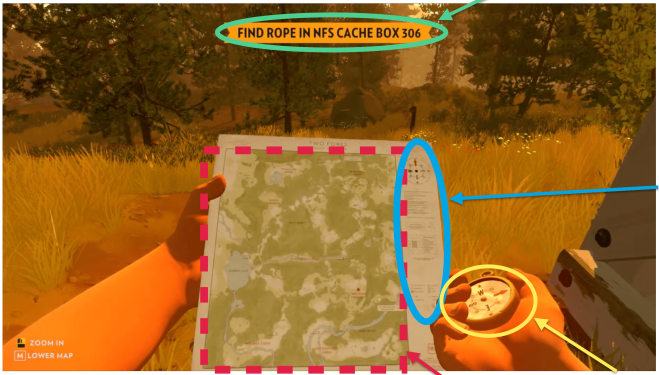
Maps are made with intent. Whether consciously or subconsciously, cartographers apply their own filters over land, inscribing what they perceive as relevant, omitting the rest, telling a story (Wood, 2015). Game maps are typically viewed as a tool for navigation rather than for narration. While their function in exploration cannot be denied, the information game designers choose to layer onto a map is telling of how they wish their game worlds to be experienced. Maps can direct a player’s attention towards, or away from components of a game, such as an area, or even a mechanic. In fact, gam...
Embedded Narrative in Open-World Video Games
December 31st, 2021
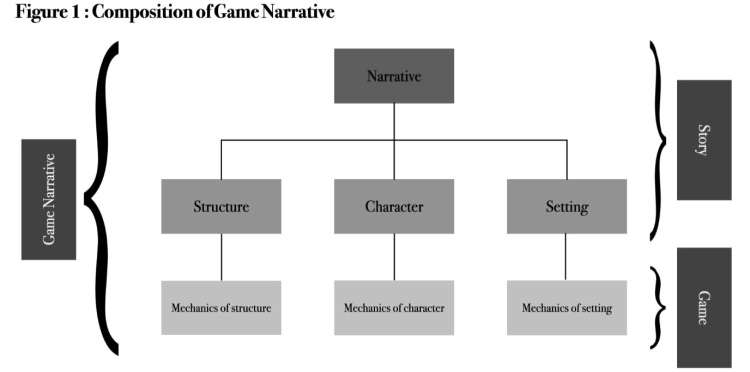
Abstract: Video games and narratives are often considered non-compatible but often combined regardless. Technical configurations and player expectations of open-world RPGs are especially conflicting, although the genre is common. This paper assumes the perspective that through narratives, game designers can contextualize actions and build purpose for players. To avoid disjunctions between ludic and narrative elements, game designers should tie the mechanics relating to narrative components (structure, character, setting) into the narrative thematically. This paper examines techniques design...
How can games aid players in solving problems without giving away the solution?
December 30th, 2021

Games empower players through rewards; stronger weapons, more points. Equally gratifying is the feeling of competency induced when solving a difficult puzzle. “Fun from games arises out of mastery. It arises out of comprehension. It is the act of solving puzzles that makes games fun”, argues Raph Koster (2005, p.40), implying that enlightenment, also known as “insight” (Stuyck, 2021), is a reward. Game developer Erin Hoffman coined the term sophia, describing the moment in which players “convert fear into happiness through surprise” (2015), or in other words, turn chaos into order by graspi...
Mapping the Contrast: Journey
May 3rd, 2021
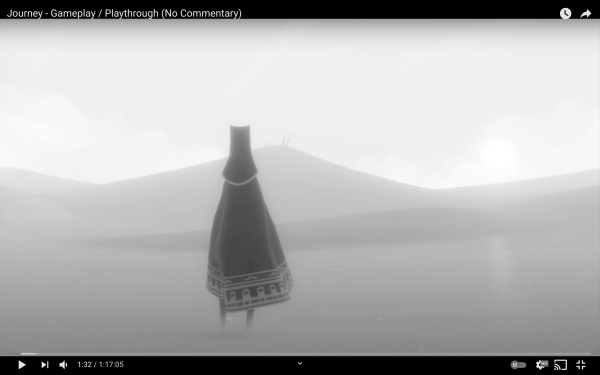
Journey (Thatgamecompany, 2012), according to game designer Jenova Chen, mimics the stages of life (2012). The variations in contrast of the character in relation to the world were designed to convey the stages’ emotions. Desaturated screenshots of the game will be analyzed. The beginning emulates childhood. The hero’s value starkly contrasts the tonally flat environment, creating “focus with value” (Tulleken, 2015). This directs the player’s attention onto the character and its abilities, alluding to the self-centredness of children. The environment’s low contrast expresses vastness and in...
Conditioning Morality: Infamous Second Son
May 2nd, 2021

Operant conditioning evaluates how “consequences of a response determine the probability of it being repeated” (McLeod, 2018). The consequences can be controlled through the strengthening of behaviour, called reinforcement, or the weakening of behaviour, called punishment. Both methods have positive and negative variations and can be executed either via addition or confiscation of a pleasant or unpleasant stimulus (McLeod, 2018). Games inherently condition, as all consequences in the game either help or prevent players from achieving the overarching aim of progression. This creates a binary...
Final Fantasy 15’s 5 Domains of Play
May 1st, 2021
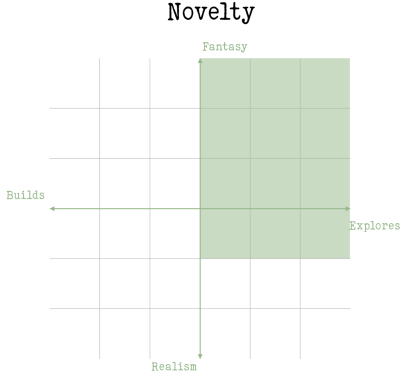
Jason VandenBerghe’s 5 domains of play help determine which player types a game will attract (VandenBerghe, 2013). By placing a game, in this case Final Fantasy XV, known as FF15 (Square Enix, 2016), on the 4 graphs suggested by VandenBerghe, a deeper understanding of the domains and their facets can be attained.
...Solving Game Problems
April 30th, 2021
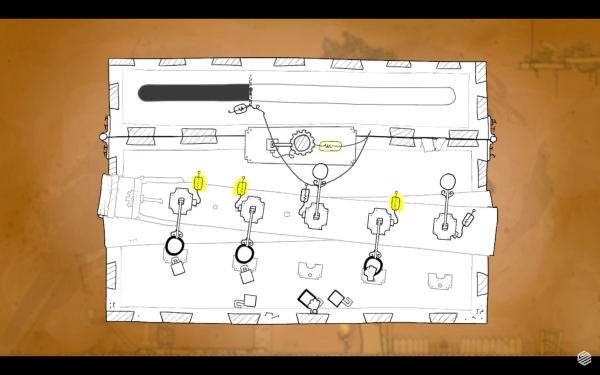
Games are full of problems that players need to solve. In the field of psychology, problems can be categorised into non-insight and insight problems. Most puzzle games feature non-insight problems, making players perform a series of actions before solving the puzzle. “Non-insight problems are designed to be solvable through a process of systematic application of knowledge and logical deduction”, explains Margaret Webb in Frontiers in Psychology (2016). 39 Days to Mars (It’s Anecdotal, 2018), for example, includes a puzzle in which players need to flip specific switches until they have fille...
Game Addiction Essay
October 31st, 2020
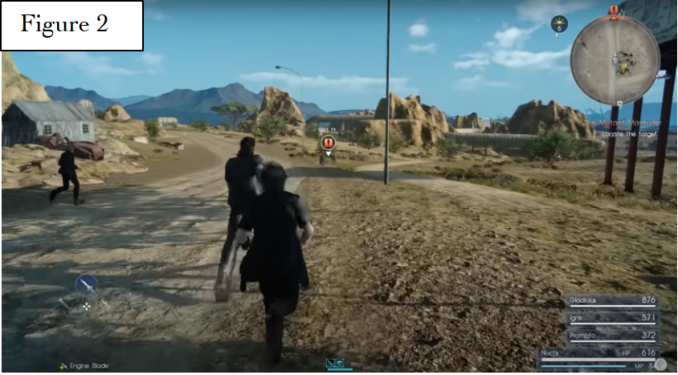
"To what extend do game designers' choices distinguish immersive games from addictive games?”
Addiction is one of the most debated topics surrounding the genre of videogames. Though its legitimacy alone is controversial and is in the process of being investigated, the World Health Organization’s (WHO) International Classification of Diseases (ICD) recognizes Gaming Disorder in the “Disorders due to Addictive Behavior” category (WHO, 2019). Research into the causes of Gaming Disorder suggests several factors, amongst which immersion. “Whilst immersion is viewed as an important and v...
